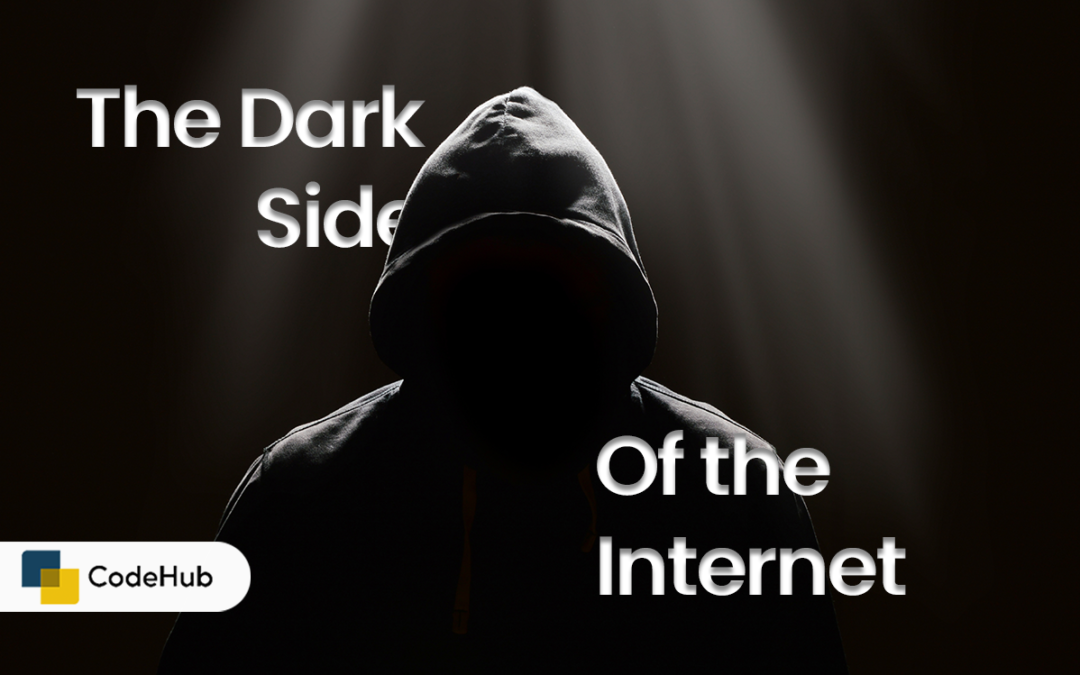The internet is a remarkable and powerful tool that has revolutionized our communication, information, education, entertainment, and commerce. It has enabled us to connect, learn, create, and share with people from all over the world. It has also opened up new opportunities and possibilities for innovation, development, and progress. However, the internet is not all sunshine and rainbows. It also has a dark side, a hidden and harmful aspect that can pose serious threats and challenges to our society, security, and well-being. In this blog post, we will explore some of the dark side of the internet, and how we can protect ourselves and others from it.
What is the dark side of the internet?
The dark side of the internet is the part of the online world that is not easily accessible, visible, or regulated by the mainstream internet users, providers, or authorities. It consists of various websites, platforms, networks, and activities that are illegal, unethical, or malicious, such as:
- The dark web: The dark web is a subset of the internet that uses encryption and anonymization technologies to hide the identity and location of the users and the content. The dark web can only be accessed through special software, such as Tor, I2P, or Freenet. The dark web hosts a variety of illicit and criminal activities, such as drug trafficking, weapons dealing, human trafficking, child pornography, hacking, fraud, terrorism, and assassination.
- The deep web: The deep web is the part of the internet that is not indexed or searchable by the conventional search engines, such as Google, Bing, or Yahoo. The deep web contains a vast amount of data and information that is stored in databases, servers, or password-protected websites, such as academic journals, medical records, government documents, or financial transactions. The deep web can also include some of the dark web content, but not all of it.
- The cybercrime: The cybercrime is the use of the internet to commit or facilitate crimes, such as identity theft, phishing, ransomware, malware, denial-of-service attacks, cyberstalking, cyberbullying, online harassment, revenge porn, sextortion, or cyberwarfare. The cybercrime can target individuals, organizations, or governments, and can cause significant damage, loss, or harm to their property, data, reputation, or security.
- The misinformation: The misinformation is the spread of false, inaccurate, or misleading information on the internet, either intentionally or unintentionally. The misinformation can include fake news, rumors, hoaxes, propaganda, conspiracy theories, or hate speech. The misinformation can influence people’s beliefs, opinions, or emotions, and can affect their decision-making, behavior, or actions. The misinformation can also undermine the credibility, trust, or quality of the legitimate information sources, such as media, experts, or institutions.
How can we protect ourselves and others from the dark side of the internet?
The dark side of the internet is a serious and complex problem that requires a collective and collaborative effort from all the internet stakeholders, such as users, providers, developers, regulators, educators, and researchers. Some of the possible ways to protect ourselves and others from the dark side of the internet are:
- Awareness and education: We need to raise awareness and educate ourselves and others about the existence, nature, and risks of the dark side of the internet, and how to avoid, prevent, or report it. We need to be critical and vigilant of the information and content that we encounter, consume, or share on the internet, and verify its source, accuracy, and credibility. We need to be respectful and responsible of the rights, privacy, and safety of ourselves and others on the internet, and follow the ethical and legal norms and rules of the online behavior and conduct.
- Security and protection: We need to enhance the security and protection of our devices, networks, and data on the internet, and use the appropriate tools and techniques to safeguard them from the cyberattacks or breaches. We need to use strong and unique passwords, encryption, antivirus, firewall, VPN, or other security software or services to secure our online accounts, transactions, or communications. We need to update our devices, applications, or systems regularly, and backup our data frequently. We need to avoid or delete any suspicious or unsolicited links, attachments, or messages that we receive on the internet, and report any incidents or issues that we encounter or experience.
- Regulation and enforcement: We need to implement and enforce the regulation and governance of the internet, and ensure the compliance and accountability of the internet actors and activities. We need to establish and follow the standards, policies, laws, or regulations that can regulate the internet content, access, or usage, and protect the rights, interests, or values of the internet users, providers, or authorities. We need to monitor and investigate the dark side of the internet, and prosecute or sanction the perpetrators or offenders of the internet crimes or violations.
Conclusion
The internet is a double-edged sword. It can be a source of good or evil, depending on how we use it. We need to be aware of the dark side of the internet, and how it can affect us and others. We need to take action to protect ourselves and others from the dark side of the internet, and use the internet for positive and constructive purposes. We need to make the internet a safer, better, and brighter place for everyone.

